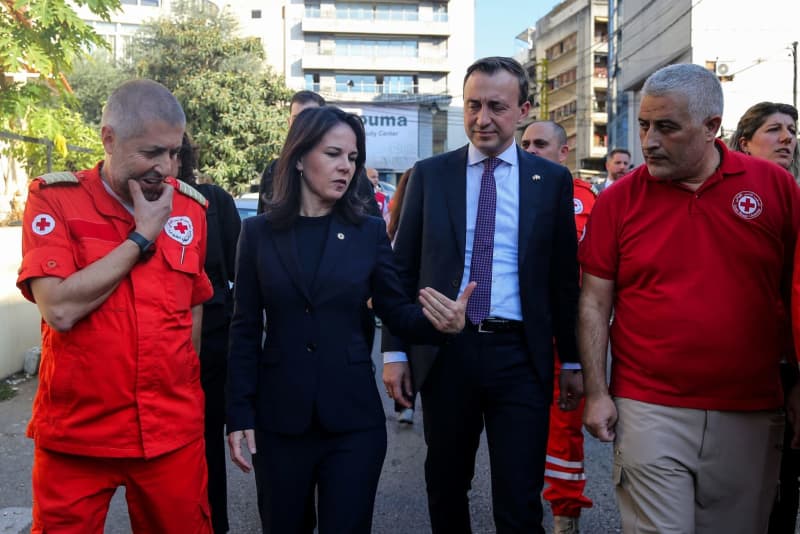Germany has announced a significant increase in its humanitarian assistance to Lebanon, with an additional pledge of €60 million (approximately $64.7 million) marking its commitment to providing support amid the escalating conflict between Israel and Hezbollah. German Foreign Minister Annalena Baerbock, who made an unannounced visit to Beirut, emphasized the precarious situation Lebanon finds itself in, warning that ongoing hostilities could lead to a complete destabilization of the country, which is noted for being the most religiously diverse society in the Middle East. During her discussions with Lebanese political leaders and aid organizations, Baerbock reiterated the need to prevent further regional destabilization that could adversely affect not only Lebanon but the wider Middle Eastern landscape.
The backdrop to Baerbock’s visit includes Israel’s intensified military operations against Hezbollah, which have resulted in a significant loss of life and displacement of civilians in southern Lebanon. Following the commencement of an Israeli ground offensive and extensive airstrikes in September, hundreds of Lebanese have been killed, and many more have fled to safer areas. These developments have raised fears of a humanitarian crisis that could overwhelm the Lebanese population, already struggling with the long-term consequences of economic collapse and previous conflicts. As Baerbock pointed out, diplomatic efforts need to be prioritized to achieve a peaceful resolution that respects the security concerns of both Israel and Lebanon.
Baerbock’s visit comes just days before an international aid conference scheduled in Paris aimed at rallying support for Lebanon’s vulnerable population and assisting in rebuilding efforts. The conference will gather various stakeholders, including representatives from the UN, the EU, and civil society groups, with a shared goal of stabilizing Lebanon. During her discussions, Baerbock underscored the importance of UN Security Council Resolution 1701, which demands that Hezbollah withdraw from southern Lebanon to ensure the safety of Israeli residents. She called for enhanced coordination among international allies to foster a viable diplomatic solution, the success of which hinges on Lebanon’s military acting impartially in the conflict.
Highlighting the urgent need for humanitarian assistance, Baerbock expressed her concerns over the increasingly dire conditions facing civilians in Lebanon, especially in the context of the recent hostilities. During her meetings, she referenced the reports from humanitarian workers who faced attacks while working to support affected communities. Acknowledging the complications arising from the violent environment, she condemned the indiscriminate tactics used by terrorist groups, while simultaneously demanding that Israel obey international humanitarian law to protect innocent civilians. Furthermore, she called for the safety of UN peacekeepers in Lebanon, condemning recent attacks against them attributed to ongoing military activities.
Baerbock’s agenda included discussions about the humanitarian situation in northern Gaza, where Israeli actions have led to severe restrictions on aid. She urged the Israeli government to facilitate increased humanitarian support in this region, emphasizing that the situation has become increasingly desperate. Despite advocating for humanitarian aid to Gaza, Baerbock also defended Germany’s decision to continue arms deliveries to Israel, asserting the nation’s right to defend itself against threats. She made it clear that all military support is contingent upon adherence to international humanitarian laws, which the Israeli government is responsible for enforcing.
Overall, Baerbock’s visit to Lebanon highlights the urgent need for a multifaceted approach to the escalating conflict, emphasizing humanitarian support and diplomatic measures. By pledging additional financial aid and addressing humanitarian issues, Germany is positioning itself as an active partner in seeking stability in Lebanon. Her focus on dialogue with both Lebanese officials and international entities reflects a broader understanding of the complex geopolitical landscape. Moving forward, fostering cooperation amongst global partners will be crucial to mitigating the humanitarian crisis and securing a peaceful resolution to ongoing tensions in the region.

